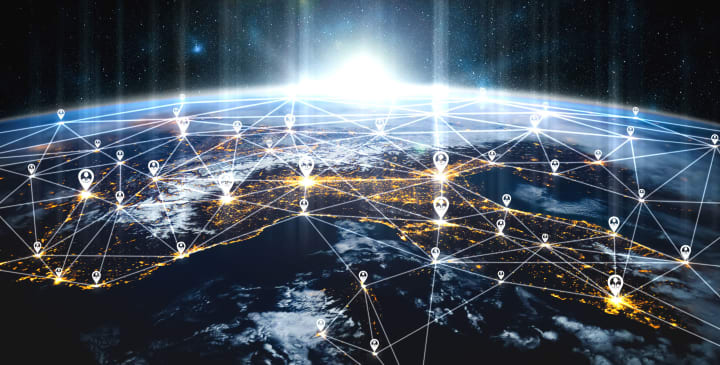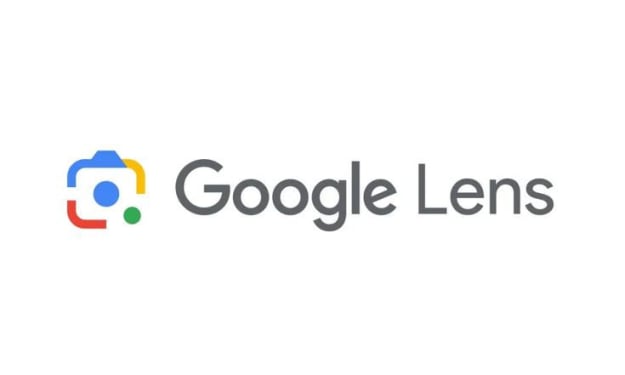Future of internet
future of internet

The fragility of the internet is currently being tested, and it is more vulnerable than people realize. In the earlier days of the internet, when it was nerdy and screechy, there was a sense of boundless possibilities. The pioneers of Web 1.0 believed that "information wants to be free" and envisioned a decentralized internet where numerous independent nodes would sustain an instantaneous worldwide communication system that would be immune to central control or sabotage.
Fast forward to today, and it seems like they were only partly right. The internet and its infrastructure are now owned by the same three American men, and the dream of an independent internet seems to have faded away. In a world of mega-platforms, attention-grabbing algorithms, and mass surveillance, the question is not whether information is free, but whether we are free.
Thanks to the pandemic, the digital world has invaded the material world, and we're all spending more time online. However, we need to protect what makes the internet great while also addressing what makes it terrifying.

To begin with, we must acknowledge the current state of affairs.Access to the internet is no longer a privilege, but a necessity for both personal growth and economic development.For developing countries, internet access provides a path out of poverty and enables access to vital services like education and healthcare.As millions in the Global South log on to the internet, the way we access it has undergone a significant transformation.
Mobile internet use, which made up only 5% of total traffic in 2011, now accounts for a comfortable 56% due to affordable phones and 4G technology.
However, this has also resulted in most of us accessing the internet through only a few applications.While these applications provide convenient access, we owe our ability to access the internet to secure facilities like internet exchange points that produce bandwidth.If these locations shut down, the internet would be inaccessible even to the most experienced IT professionals.
A prime example of this occurred in 2011, when the Egyptian government shut down the Ramses Exchange in Cairo, one of the country's two main exchange points.The government took this drastic step as the internet was being used to organize protests and users shared real-time videos of violence, which galvanized others to participate.

For several days, only a few government ministries and the stock market had access to the internet. This posed a threat to the crumbling regime, and when the government eventually fell, the internet was given most of the credit. Protests were organized at an unprecedented speed without appointed leaders, showcasing the internet's ability to enable decentralized mass organization, something no other technology has ever achieved. However, since then, regimes have learned to harness the internet's power for their own purposes.
In 2019, both Iran and Iraq faced potentially destabilizing protest movements, and both governments reacted by pulling the national router. These blackouts are costly, as Iraq's 11-day shutdown was estimated to cost over 2 billion dollars to their economy. Iran's shutdown lasted only eight days, but it was long enough for the communication blackout to imprison organizers and murder hundreds of protesters. Although video footage of violence eventually made its way online once access was restored, the protest movement had already lost momentum.
This year, the struggle for the free internet has been fought on the front lines in Myanmar.

The military took control of Myanmar in February and implemented nightly internet shutdowns to hinder protests and conceal human rights violations.Social media was banned for months,but activists found ways to bypass the restrictions using VPNs to access restricted services and record incidents of state violence.
This is a form of guerrilla cyberwarfare that has real-world consequences.While mobile phones have empowered the resistance, they have also enabled data-driven mass surveillance. If you use the wrong platform,the government can monitor your private messages and delete them automatically before they reach their intended recipient. To me, this is akin to the government censoring your mail and your thoughts.
But there is hope.
Just before the military takeover, a fitness influencer captured the junta's top brass in the background of a viral video as they deposed the democratically elected leader.

The current state of the internet can be described as both ridiculous and tragic, and this is exemplified by recent events. However, even when a repressive regime controls the internet infrastructure, information still finds a way to spread. However, in the Western world, we are facing a different problem where information has become too free, often spreading disinformation and misinformation on social media. The World Health Organization has referred to the pandemic as an "infodemic" due to the prevalence of false information. The spread of conspiracy theories, such as the one linking 5G to coronavirus in the UK, has led to dangerous consequences such as over 30 arson attacks on cell towers in March 2020 alone. The boundaries of free speech are being tested in the face of disinformation and conspiracy theories.

It is evident that there is a problem at hand. However, combating disinformation is a complex task when the mega-platforms have grown so large that it's almost impossible to moderate them effectively. Facebook attempted to use machine learning to detect and remove harmful content, but it struggled to distinguish between official government advice and misleading posts that imitated it. The imperfections of the machines create imperfect outcomes. This is a human issue that has existed before the internet, driven by the demand for disinformation based on people's beliefs. Where there is demand, there is a market for supply.
Facebook admits that most disinformation on their platform is financially motivated. Malicious actors owning small websites filled with ads, advertise on Facebook to gain traction. Platforms may not be able to monitor everything we say, and that may not be necessary, but they are capable of regulating who pays them.
However, mega-platforms resist advertising regulations, as it is where they generate most of their revenue. It is known that they are not offering us a service, but instead, they are selling our attention.The unregulated internet is now widely distrusted. In the UK, there have been public campaigns and government proposals to link social media accounts to government-issued identification to remove anonymity, and hold individuals accountable for their online conduct.

Although well-intentioned, connecting social media accounts to government-issued identification is a terrible idea. It would leave marginalized groups and political dissidents vulnerable to phishing scams and identity theft, as anonymity is crucial to protect their free speech.

Jon Postel was contracted by the US government to manage the root authority of the Domain Name System, which is the highest level in the internet's infrastructure hierarchy. This means that the root authority ensures that when you type in a website address, such as twitter.com or paymytaxes.gov, you are directed to the right place on the internet. However, if someone were to control the root authority, they could potentially block access to any website or even delete them altogether. When the US government asked Jon to give up control, he refused. This act of resistance resulted in the formation of ICANN, an international organization that ensures the internet cannot be controlled by a single entity, whether it be a company or a government.

Naturally, some governments have opposed this concept. In particular, the Chinese government has advocated for "internet sovereignty" since 2013, which means that each country has the right to control a separate version of the internet within its borders. Although China's internet has functioned this way for years, other countries are becoming interested in this approach. Iran created its own version in 2018, and Russia is currently testing theirs in secret. While these national firewalls are used to block unwanted information, their primary goal is to quash any organization outside of the ruling party's structure. Moreover, if disinformation is our concern, governments are the last entities we should rely on for its regulation.

In 2018, Facebook's COO, Sheryl Sandberg, announced that the company had deleted more than 1.3 billion fake accounts in just six months. Many of these accounts were likely created at the St. Petersburg office of the Internet Research Agency, a private company owned by a close friend of Vladimir Putin and funded by the state to run a troll army. The goal of this army is to spread disinformation and sow discord online through a phantom army of puppet accounts and conspiracy theories. Their aim is not to support one side of an argument, but to stoke debate and make all sides seem equally ridiculous. However, this type of propaganda is fundamentally weak when confronted with the sincerity of outsiders.

A small number of corporations capture approximately 80% of internet traffic and we're increasingly reliant on them. The UK's internet use doubled in one year due to the pandemic and remote work, with services such as Netflix putting pressure on the internet's infrastructure. The hyperscale data center, a vast cabinet labyrinth of computers, has doubled in number in the last five years, and more than half are owned by just four companies - Amazon, Microsoft, Google, and Apple. Internet service providers are unhappy as these companies consume excessive bandwidth without paying their fair share. Although it is worrisome that so few companies control such a large portion of the internet, their position is not guaranteed. Facebook's internal projections show that teenagers are abandoning their platform in droves, with the company's American user base potentially decreasing by 45% within two years. While these platforms are powerful, their influence is only as significant as the attention we give them.

The internet is still in its early stages, and emerging competitors are appearing from all corners.
One type of competitor that stands out is the super apps. These apps, which are mostly found in Asia and are only available on mobile devices, position themselves as the ultimate solution for all internet-based needs.
Examples of such apps include Grab in Singapore, GoTo in Indonesia, and China's WeChat, which is by far the most popular, boasting over 1.3 billion active daily users. WeChat has become deeply integrated into daily life in China and functions as a virtual wallet, driver's license, and even a means to book flights, hotels, and doctor's appointments. The app has contributed to China's transition towards a cashless society, replacing physical currency with QR codes. While it has made essential services more accessible to older generations and industrial workers, it also gathers users' personal data, messages, and locations, which the government can access through a backdoor.

The widespread use of super apps has made it easier for governments and companies to monitor individuals, jeopardizing privacy and potentially rendering it obsolete. The absence of alternative platforms means that there are limited options for individuals who wish to protect their privacy.
The internet was initially created to be decentralized and universally accessible, without a central hub or location. The emergence of a global internet culture has brought people from all over the world closer together. It's crucial to ensure that everyone has equal access to this global network.
While it's impossible to predict precisely how the internet will evolve in the future, it's certain that it will continue to play a vital role in our lives. As the most significant invention of our time, it's essential to promote positive values such as openness, curiosity, cooperation, and a healthy skepticism of authority, ensuring that it reflects the best aspects of human nature.





Comments
There are no comments for this story
Be the first to respond and start the conversation.